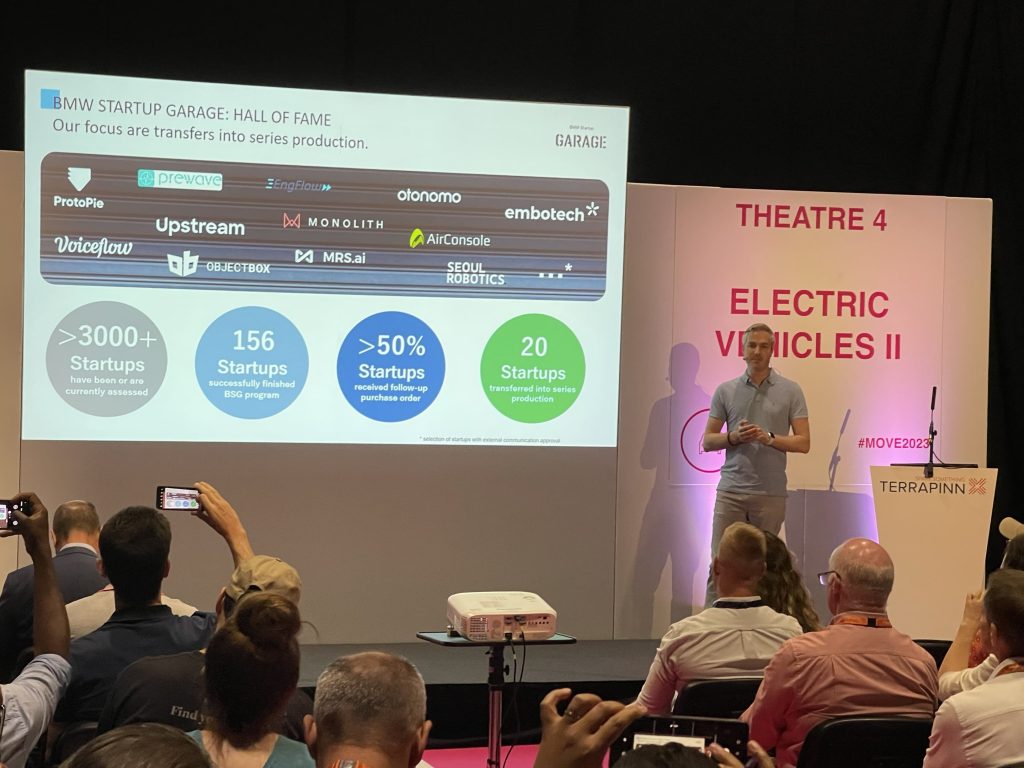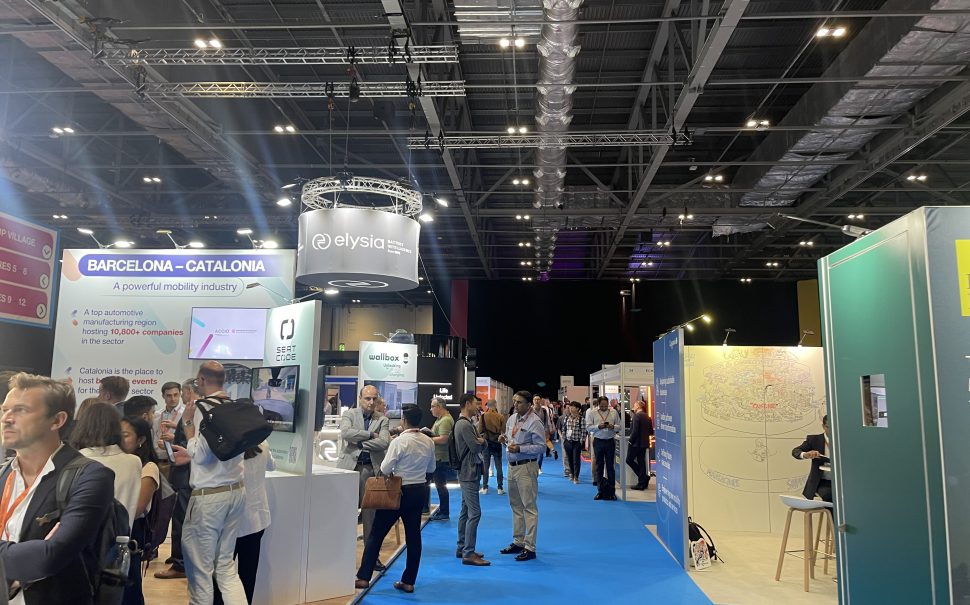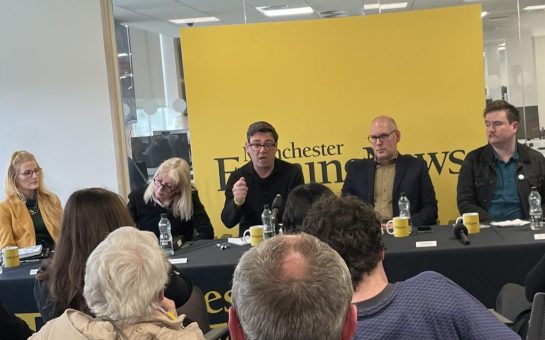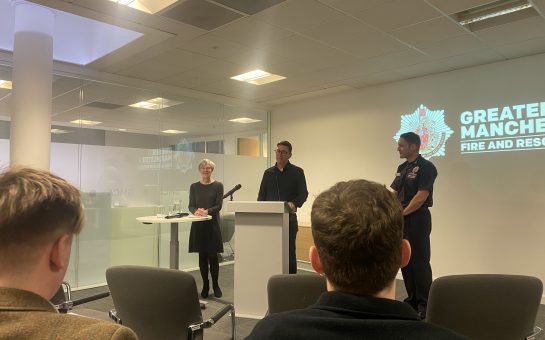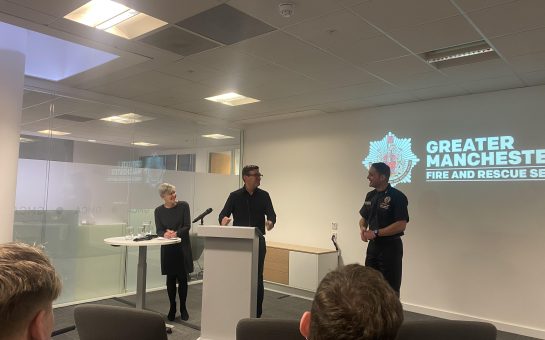The fifth MOVE conference took place at Excel London on 21-22 June, where professionals from different sectors gathered to discuss the future of sustainability.
The conference showcased the latest technologies and companies, featuring 1,088 speakers, 10,000 attendees, and over 150 exhibitors across 40 conference stages. Topics covered electric vehicles, tech, data and innovation, start-up company pitching, regulation, liability and ESG, and included panel discussions, presentations, and debates.
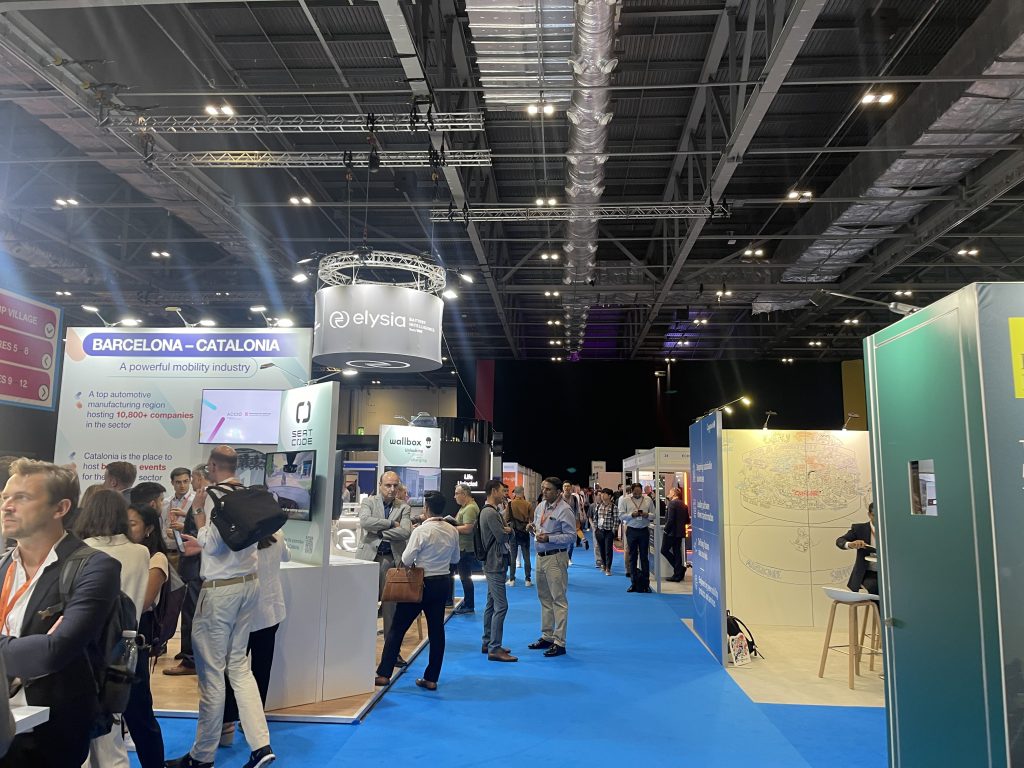
One of the conference’s main themes focused on how government, businesses, and higher education sectors can collaborate to shape the net-zero target based on reflections from the current stage.
Kye Dudd, a cabinet member in Bristol City Council, delivered a talk on unlocking climate finance, providing a roadmap for securing the necessary funding for decarbonization.
Bristol, now a pioneer in building green cities, has actively engaged the local community under the leadership of the local government.
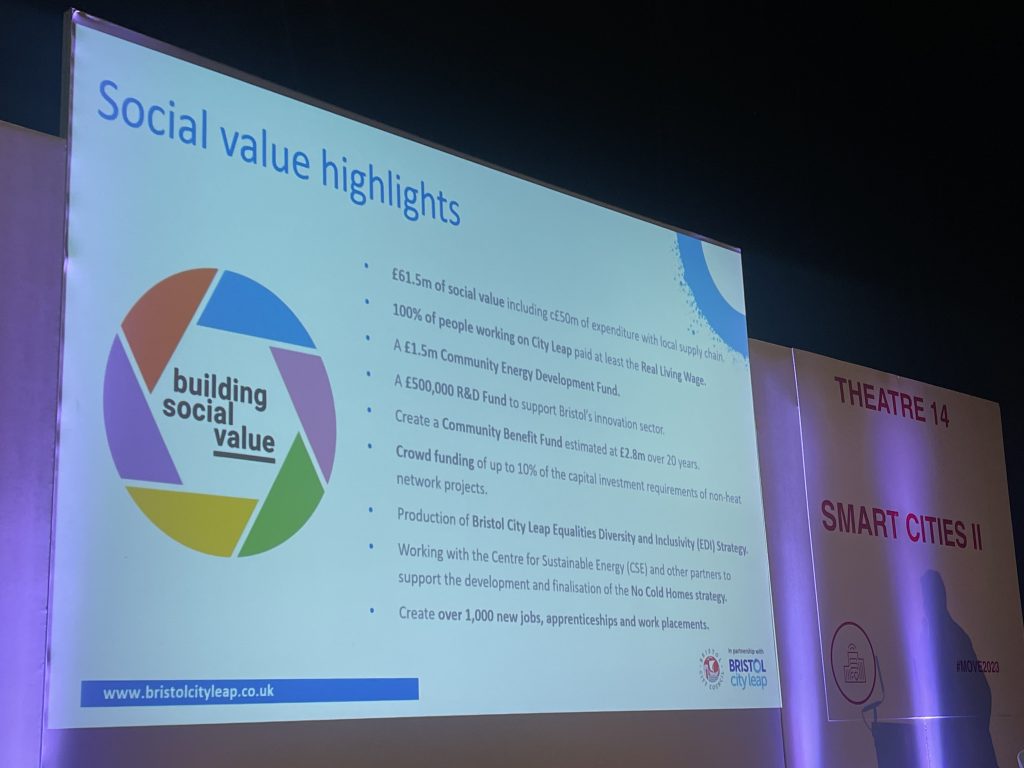
Dudd outlined the roadmap of Bristol City Council’s plan to develop climate finance from early 2023 to 2028. The government has established a range of funds to encourage local citizens and organisations to participate.
“We started by quantifying the solutions needed to achieve decarbonization and their associated costs,” Dudd explained.
“Then, we established a joint venture company with 50% ownership by the council, and partnered with US energy company Ameresco for the remaining 50%.
“Over the next five years, Ameresco will invest £600 million and create a thousand jobs. The long-term investment projection over 20 years is at least one billion pounds.”
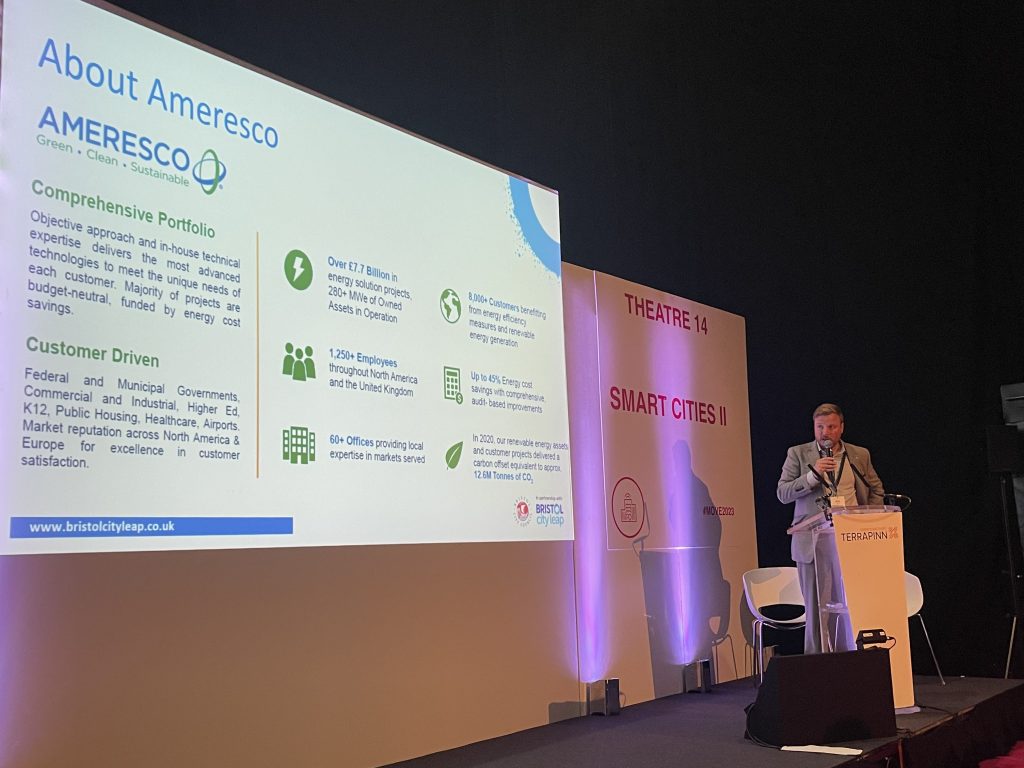
However, the groundbreaking project faced several challenges, including financial and legal consultations and disagreements from opposing parties.
“Bristol has a long history of working towards decarbonization, and our political party is serious about tackling the climate emergency. We are more interested in practical solutions,” added Dudd.
Looking to the future, Bristol City Council plans to collaborate with higher education institutions and college students to create more apprenticeship opportunities related to the sustainability industry.
Another session focused on European regulations titled “Fully Charged for 2035? EU Policies for EVs and Charging.” The growing demand for electric vehicles presents a key challenge for governments, as there is not enough public charging infrastructure.
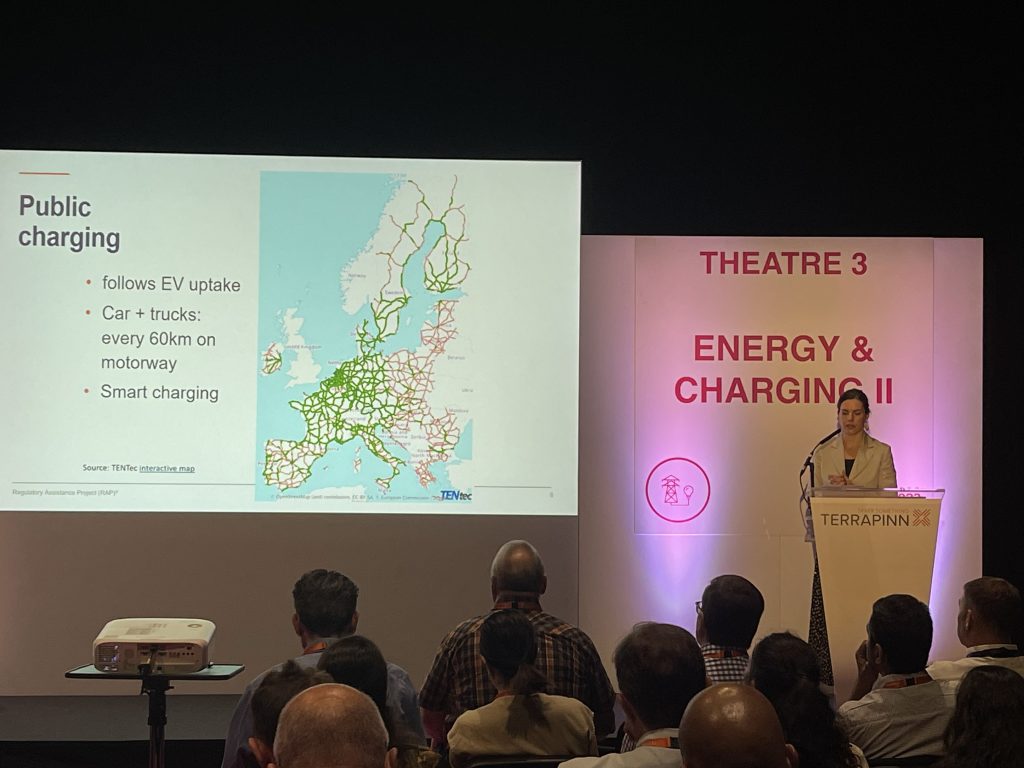
Julia Hidermeier, a senior associate from the Regulatory Assistance Project (RAP), an independent non-governmental organization supporting the transition to a clean future, emphasised the importance of collaboration between governments and businesses to develop user-friendly, smart charging systems that reduce barriers to electric vehicle adoption. It is also important to share data to improve the services.
“We suggest having a charging point every 60 km on motorways, making it easily accessible for the public,” Hidermeier stated.
“Additionally, we will enhance rewards for consumer flexibility, encouraging more drivers to adopt electric vehicles. Government sectors should also explore cleaner energy generation methods like wind power to meet the increasing energy demand.”
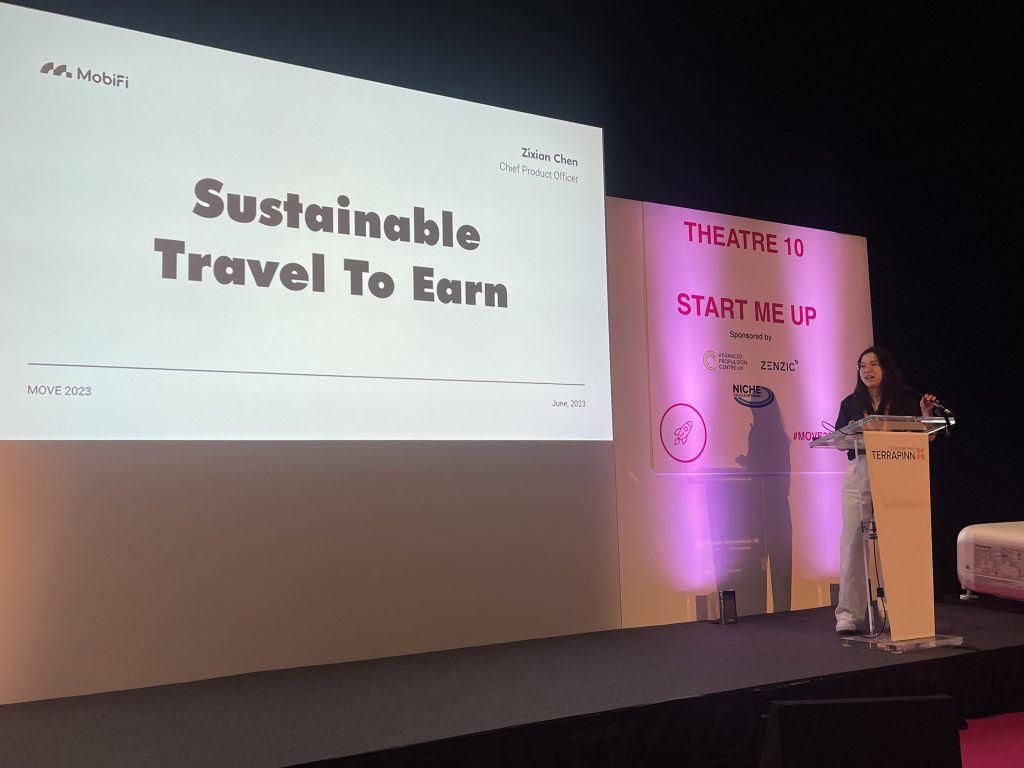
There were many start-up companies joined discussion and showcase their unique ideas to help achieve net-zero. MobiFi focuses on combining driving and public transport to enhance travel efficiency. The app provides advice for sustainable travel and unique features like token rewards and gamification, encouraging users to engage with green travel methods.
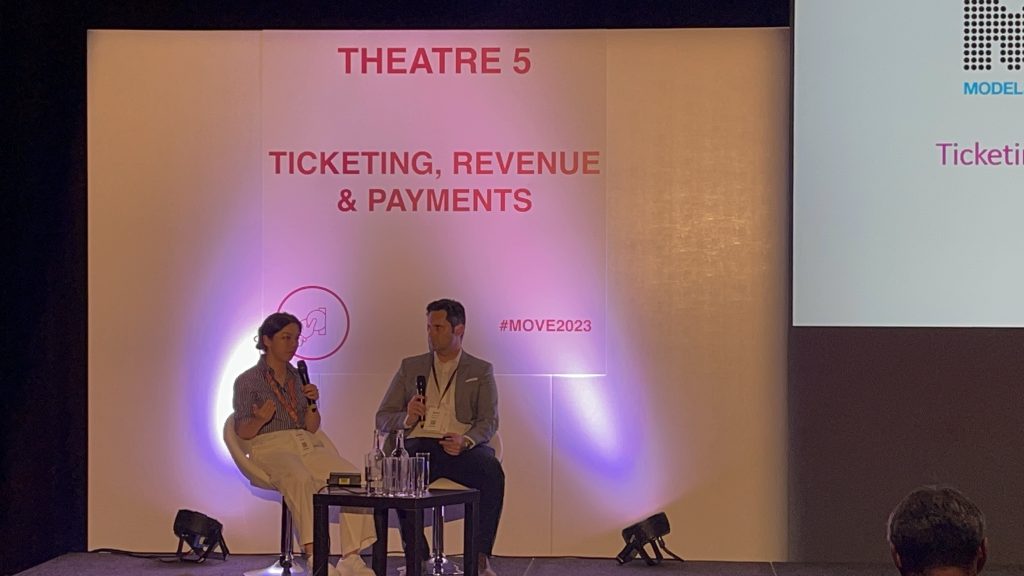
Zixian, Chief Product Officer of MobiFi, explained: “Our main goal is to encourage users to adopt green travel methods through the reward mechanism of digital assets, such as encryption and NFTs.
“Currently, we are working to expand our business by collaborating with more services, providing local green travel options and other travel-related services in the MobiFi market.”
The public was expecting big companies to take more responsibility, as well.
BMW start-up manager shared how they worked with start-ups to become digital,
electric, and circular.
Toni Plochl explained how BMW is opening their door to corporations with start-ups.
“We invited our top management team to be involved in meetings with start-up companies
from early on.” Said Toni.
“This can save the time of the selection process because we are keen to work
with intelligent companies to improve together to achieve net-zero
target.”
BMW also started to use more renewable natural resources to build materials for their cars.
“We used recycled cotton, natural rubbert, coconut husks, hemp, and so on. The
reason why we used it because it is environmental-friendly and they are easy to
be recycled. This helps raising the awareness of customers in terms of what we
are doing to save our environment.”
